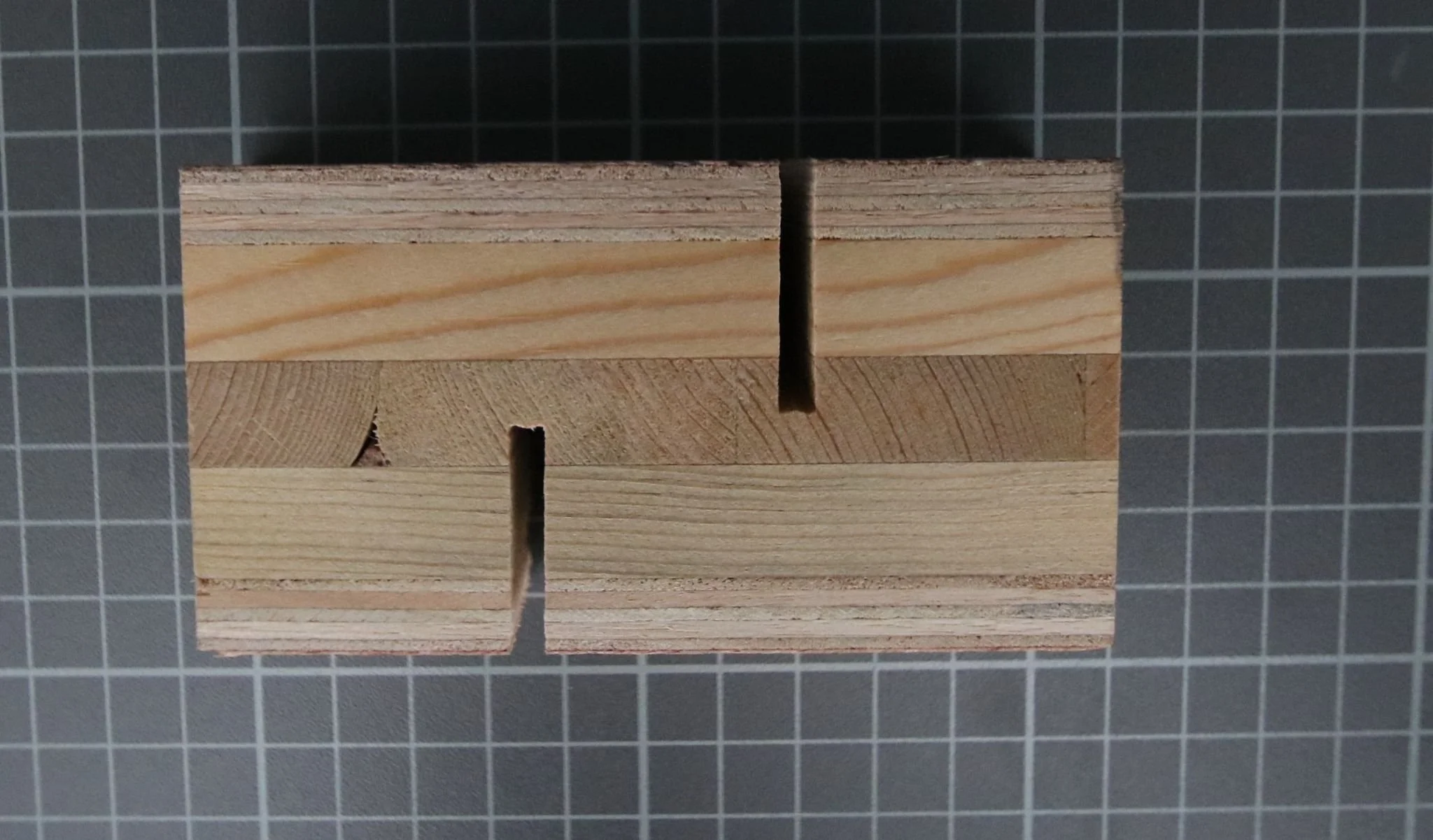BBB Technologies is regularly asked to examine the failure of construction materials, ranging from metals to paints to timber. In this case study, we will discuss a significant timber issue experienced by a reputable timber joinery.
A large joinery shop was contracted to manufacture several hundred exterior doors for a decorous application, which called for the use of facings made from marine plywood glued with resorcinol adhesive. The doors were manufactured and installed, after which they received one primer coat and two coats of topcoat. Within several months, issues arose in the form of coating failure and localised delamination of the individual plies. The doors were replaced at the expense of the joinery, and BBB Technologies was called in to advise.
We attended the joinery to examine the doors, and take samples from various points of the door.





